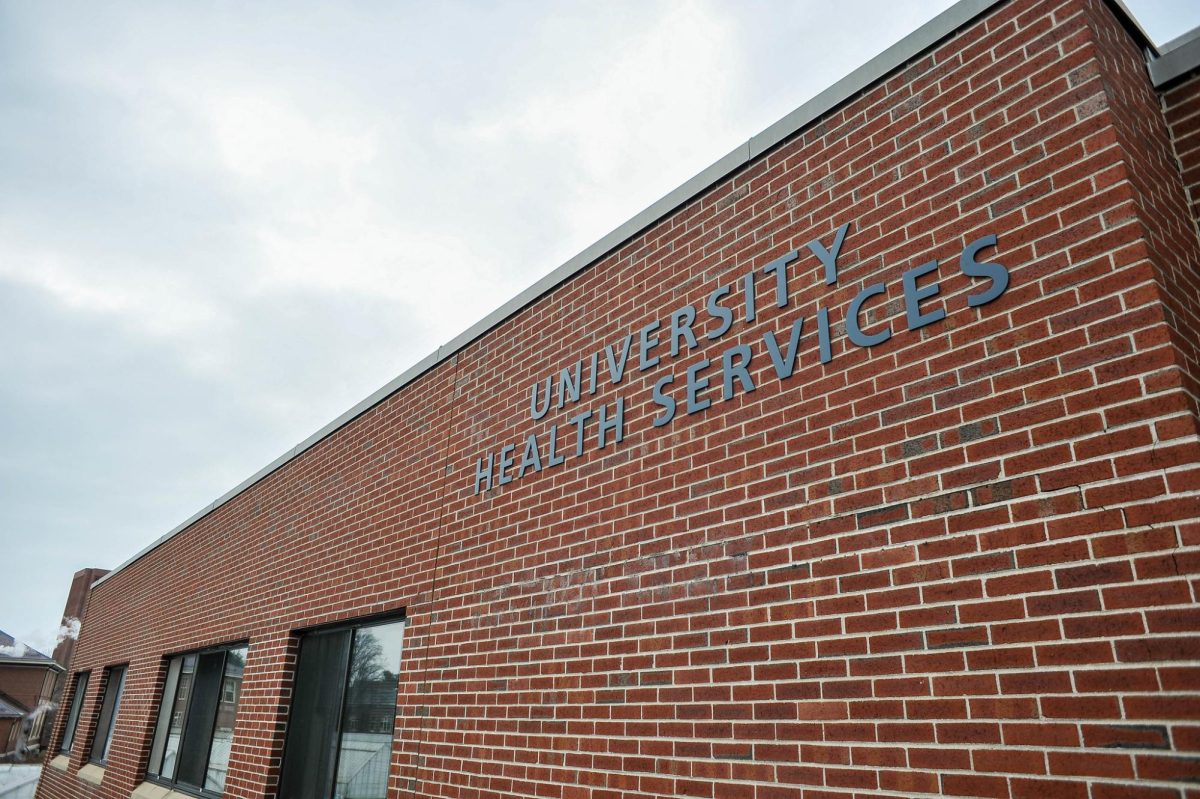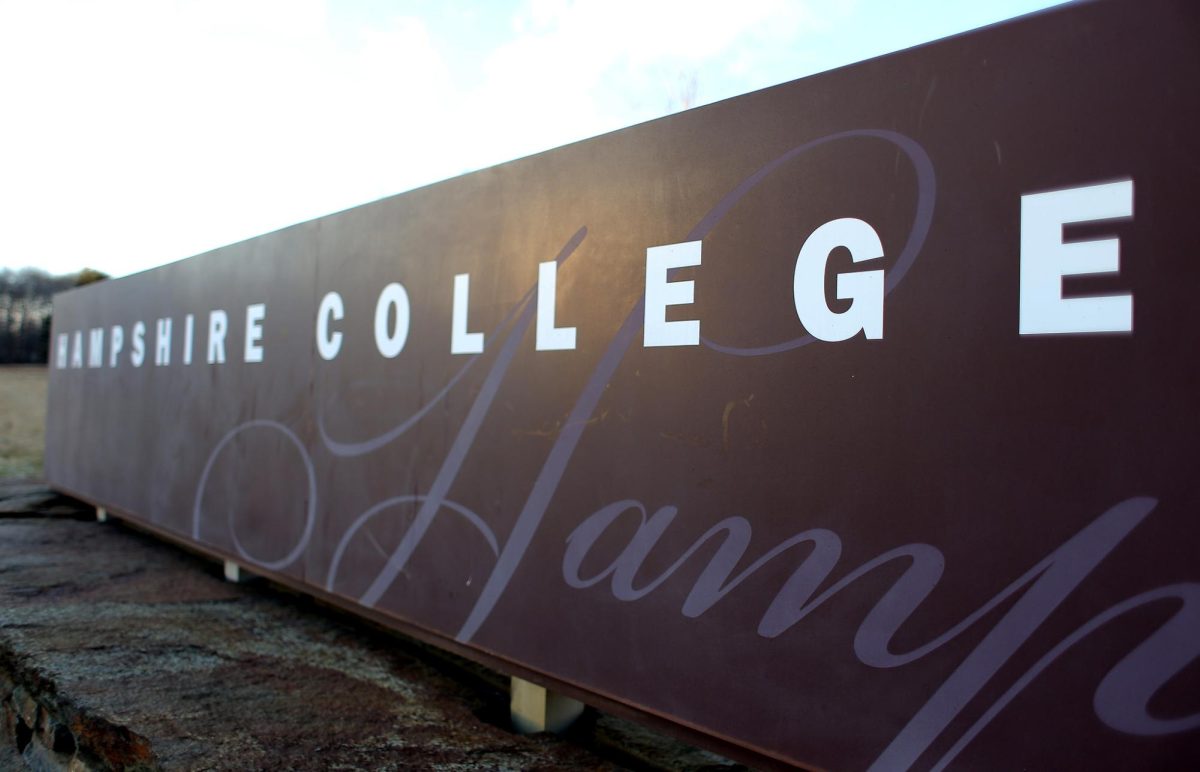
In 2016, cannabis became legal to grow and cultivate in Massachusetts. Now, only one year later, there are cannabis cultivation events sprouting throughout the state.
One such event was “Growing Cannabis On the Farm,” sponsored by the Northeast Organic Farming Association and the Massachusetts Recreational Consumer Council, which took place at the Red Barn at Hampshire College this past Sunday.
Dan Bensonoff, NOFA policy director and education events organizer opened the event with remarks about how today’s growers and participants are shaping a cultural transformation to how cannabis is viewed.
Paul Brennan, an instructor at New England Grassroots and an endocannabinoid system and growth expert, presented a cultivation crash course to the audience.
This course focused on the science of the cannabis plant, integrating cannabis on the farm and craft organic cultivation.
According to Brennan, Massachusetts is “crafting an industry from the ground up that has not existed” through organic, crafted growing methods that are driven from small crop and home growers. The craft of cannabis has “cultural similarities” to the craft of wine and beer, noted Brennan.
Major companies will want to grow cannabis on a large scale, but the craft part of this industry is where small-scale growers can compete with such companies. Brennan believes organic and local growing will give the small-scale growers the upper hand when it comes to branding and crafting.
Growing a cannabis plant is very similar to growing other plants such as apple trees, cranberries or even tomatoes. The necessities for growing cannabis are air, food, water and a living environment. There are numerous ways to grow cannabis, and each way is specified for the type of plant.
The environment is a major aspect of the growing process in the plant’s living environment, controlling the temperature, air circulation and humidity is important for the growth of cannabis, according to Brennan.
For example, Brennan said plants do best in a “well-ventilated” environment with temperatures averaging around 75 to 80 degrees during the day, and temperatures averaging from 60 to 65 degrees at night. The plants growth will suffer if their growing environment temperatures are either too high or too low, therefore impacting production.
Another part of the learning environment is the humidity. According to Brennan, “cannabis thrive in an environment around 50 percent relative humidity through its growth and flower stages.”
There is potential for mold to grow if the humidity is over 65 percent.
The nutrients cannabis receives are a vital part of the growing process. However, cannabis requires a lot of water to thrive, and only absorbs all the nutrients it needs when the water is slightly acidic.
The nutrients cannabis relies on are primarily macronutrients, micronutrients and other minerals and trace elements. Brennan said cannabis need the “big three” nutrients—which are nitrogen, phosphorus and potassium—to flourish.
There is a shorter growing season for cannabis in New England, therefore Brennan suggests to start growing indoors and move outdoors when the weather enables growers to do so. Brennan warns that while integrating cannabis on farms, growers need to be cautious of mold and mildew, insects and pests and pollen contamination.
There are multiple components that go into the growing process, and understanding all of these components are imperative to effectively grow cannabis.
Dan Bergeron, owner of Gray Raven Farm in Berkshire County, was attracted to this event for commerce purposes, and his personal interest in cannabis legalization. Gray Raven Farm sells naturally handmade goat milk soap, goat milk and honey lotions and raw honey.
Bergeron wants to potentially “enhance some of [their] products by adding medicinal cannabis” to them. He said he is happy to see so many people interested in cannabis production, and is looking forward to finding other people to grow with him.
Brennan says right now cannabis is one of the most “lucrative crops” on earth, and it can be “easily incorporated among already established crops.” Brennan made what he called a conservative estimate that growers will get roughly one ounce of product per square foot they plant.
“Currently, the market is getting about $2,000 per pound of quality, outdoor New England cannabis,” Brennan said.
“The individual small business farmers and co-operatives who carve out a niche on the craft boutique and organic market will certainly see higher returns than larger scale commercial growth operations,” said Brennan.
Currently, there is no recognized third party certification for organic cannabis. Therefore, users and growers need to build a relationship and trust their local organic producer.
“Organic cultivation relies heavily on a living rhizosphere with micro beasties helping to deliver nutrients to the plant,” Brennan said. Farmers can grow organically by adding an “organic nutrient line added to the soil” or by “living soils.”
“I’ve generally been looking at the cannabis industry in Massachusetts, and looking into the possibilities of starting my own company or my own farm,” said Ezra Marcus, a University of Massachusetts senior, agricultural sustainable food and farming major.
Marcus added, “Everyone is adapting to this new industry, and it’s very interesting to see how cannabis is being normalized and taken on by these small scale growers.”
Other topics discussed during the event were cannabis cultivation law and regulations, and shaping the future of cannabis cultivation in Massachusetts.
Saárah Murphy can be reached at [email protected].


















